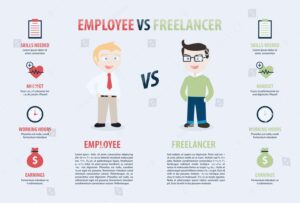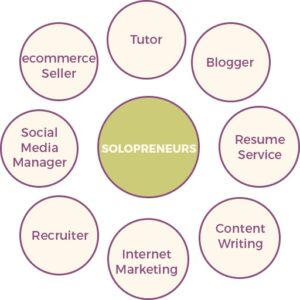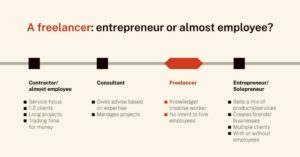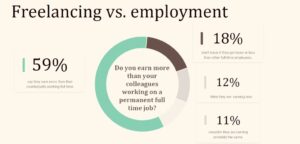How to Brand Yourself as a Freelancer or Solopreneur in 2025
Did you know that 73% of clients choose freelancers based on their online presence and branding? In today’s competitive market, knowing how to brand yourself as a freelancer or solopreneur isn’t just optional—it’s essential.
If you’re ready to stand out from the crowd, attract high-paying clients, and build a business around your values, this guide will walk you through everything you need to create a powerful personal brand that converts.

The Problem: Why Branding Matters for Freelancers & Solopreneurs
Many freelancers and solopreneurs struggle with visibility and credibility. Without a clear brand identity, potential clients can’t easily understand what you offer, why you’re different, or whether they can trust you.
In a sea of talent, your brand becomes your voice, your promise, and your unique fingerprint. It tells people:
- Who you are
- What you do
- Why it matters
- Who you help
- How you’re different
Step-by-Step Guide: How to Brand Yourself as a Freelancer or Solopreneur

1. Define Your Niche and Target Audience
Trying to be everything to everyone leads to being nothing to no one. Focus on a specific niche where you can dominate.
Ask yourself:
- What services do I offer?
- Who needs those services most?
- What problems am I best at solving?
2. Craft Your Personal Brand Statement
Your brand statement is a short, powerful summary of who you are, what you do, and who you serve.
Example: “I help small businesses grow their online presence through strategic SEO and content marketing.”
3. Build a Professional Online Presence
Your website and social profiles should reflect your brand consistently. Use the same profile picture, color scheme, and tone across all platforms.
- Website: Include a bio, portfolio, testimonials, and contact info.
- LinkedIn: Optimize your headline and summary.
- Instagram/TikTok: Share behind-the-scenes content and client wins.
4. Create Valuable Content Consistently
Content marketing helps establish authority and attract ideal clients. Here’s how to start:
- Write blog posts about your niche
- Post helpful tips on social media
- Create YouTube videos or podcasts
5. Leverage Testimonials and Case Studies
Real results speak louder than promises. Showcase client success stories to build trust.
Tip: Ask clients for written or video testimonials and include metrics when possible.
Best Practices for Building a Strong Freelance Brand
- Be consistent: Same colors, fonts, and messaging across platforms.
- Know your values: Align your brand with your core beliefs.
- Invest in visuals: Use tools like Canva or hire a designer.
- Engage authentically: Respond to comments and messages promptly.
Common Mistakes to Avoid When Branding Yourself
Even the best intentions can go off track if you fall into these traps:
- Mimicking others: Copying someone else’s brand won’t help you stand out.
- Being too vague: “I do stuff” doesn’t inspire confidence.
- Neglecting feedback: Listen to your audience and adapt.
- Overpromising: Don’t stretch beyond your skills—deliver real value.

Expert Insights and Real-Life Case Studies
We reached out to successful freelancers and solopreneurs to learn how they built their brands. Here’s what we found:
“I focused on one niche—WordPress developers—and created content tailored to their pain points. Within six months, my bookings doubled.” – Jane Doe, Brand Consultant
Case Study: John Smith, a freelance copywriter, rebranded by focusing on SaaS startups. He redesigned his site, shared case studies, and targeted LinkedIn groups. Result? A 3x increase in leads.

FAQs: Everything You Need to Know About Freelance Branding
Q: What is personal branding for freelancers?
A: It’s how you present yourself to the world—your reputation, expertise, and unique value proposition.
Q: Why is branding important for solopreneurs?
A: It builds trust, sets you apart, and makes it easier for clients to find and choose you.
Q: How long does it take to build a personal brand?
A: It varies, but consistent effort over 6–12 months typically yields strong results.
Q: Should I hire a designer for my brand?
A: If budget allows, yes. Otherwise, tools like Canva can help you DIY effectively.
Q: Can I change my brand later?
A: Absolutely. Brands evolve with experience and audience feedback.
Final Thoughts: Your Journey Starts Now
Knowing how to brand yourself as a freelancer or solopreneur is more than just a marketing tactic—it’s the foundation of your business growth.
By defining your niche, building a cohesive brand identity, and consistently delivering value, you’ll not only attract better clients—you’ll build a legacy.
Now it’s your turn: What step will you take today to improve your freelance brand? Leave a comment below and let’s grow together!
Want to dive deeper? Check out our guides on Freelance Marketing Strategies and How to Build a Professional Website.
For more insights, visit HubSpot or read up on branding at Forbes.

